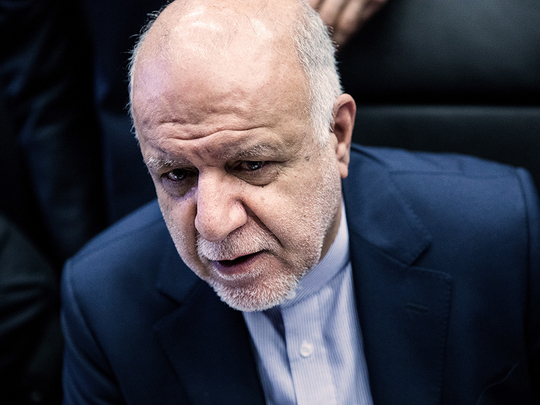
Dubai: Iran’s President Hassan Rouhani proposed the reappointment of its longest-serving oil minister, Bijan Namdar Zanganeh, who fought to restore crude production and closed a landmark deal with Total SA to develop the Gulf country’s share of the biggest natural gasfield.
Rouhani submitted names of his cabinet nominees, including Zanganeh, for parliamentary approval, Tasnim news agency reported. Zanganeh, a 65-year-old engineer who served two presidents as oil minister, succeeded in shielding Iran from joining global cuts in crude production by Opec and other major suppliers. Parliament is set to vote on his reappointment starting next week, according to state media.
During the first of his two terms as oil minister, from 1997 until 2005, Zanganeh enticed foreign companies including Total and Royal Dutch Shell Plc to help revive Iran’s oil and gasfields after years of under-investment. He returned to the post in 2013 and boosted the nation’s oil exports as production rose by about 1 million barrels a day after the easing of economic sanctions in January 2016.
His latest efforts to woo investors bore fruit when Total signed a contract on July 3 to develop South Pars, Iran’s share of the world’s largest gas deposit, the first major investment by an international energy company since sanctions were scaled back.
‘No-nonsense approach’
“Zanganeh’s straightforward and no-nonsense approach was key in opening Iran’s petroleum sector to foreign investment in the late 1990s,” and he was a catalyst almost 20 years later for the milestone contract with Total, said Robin Mills, chief executive officer at Dubai-based consultant Qamar Energy. The Total agreement is “a big deal” that can “open the door for more companies to sign contracts with the country.”
When other members of the Organisation of Petroleum Exporting Countries (Opec) decided last November to pump less oil to reduce a global glut, Zanganeh wrangled permission for Iran to raise output by 90,000 barrels a day. He preserved the special arrangement when Opec and allied producers extended their supply cuts through next March.












